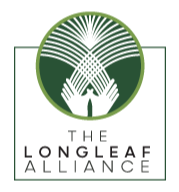Videos, podcasts, multimedia
On the Line-Survey Says... Apr 21, 2020
While much is known about the science of wildland fire behavior, the same cannot necessarily be said about our understanding of the impacts that these blazes have upon those tasked with putting them out. Although that knowledge base is slowly building, much remains to be learned about the psychological and behavioral health of wildland firefighters (WLFF’s). Thanks to the recent research efforts of clinical psychology doctoral student Patty O’Brien (a former Lolo Hotshot, and now Dr. O’Brien), we now know a great deal more. Patty was able to survey over 2600 current or former wildland firefighters to learn more about their demographic, employment, and clinical characteristics, as well as their health behaviors. In this, the tenth and final podcast of On the Line season three, Patty and her doctoral advisor Dr. Duncan Campbell join host Charlie Palmer to discuss some of her groundbreaking findings, and to chart out a course for future steps.
Eastern redcedar burning tips
Landowners and forest managers are welcomed to learn about how to clear and Eastern redcedar and maintain their lands and forests with prescribed burns.
The Importance of Regular Prescribed Burning
Landowners and producers are welcomed to learn about the importance of regular prescribed burning. View property that was recently burned and how this treatment helps manage the land.
Managing Burns Safely
Tips for landowners and producers on how to burn their pasture safely and efficiently in the spring. Brought to you by John Weir at Oklahoma State University.
The benefits of prescribed burns in growing season
Fire Ecologist John Weir describes the benefits of prescribed burns during the livestock grass growing season.
The Benefits of Opening Forest Canopies
Learn about the benefits of creating open canopy in oak forested areas -- for livestock, aesthetics, and wildlife -- with Dwayne Elmore from the Oklahoma State University Extension.
Lucas Furman: The Longleaf Alliance & SE Fire Map
Lucas Furman is the GIS Coordinator at the Longleaf Alliance; in this role he also serves as a project liaison for the Southeast Fire Map. He shares about the importance of collaboration across stakeholder groups to develop good planning tools and serve all actors in a landscape.
Paul Hessburg: Why Wildfires Have Gotten Worse-and What We Can Do About It
Megafires, individual fires that burn more than 100,000 acres, are on the rise in the western United States -- the direct result of unintentional yet massive changes we've brought to the forests through a century of misguided management. What steps can we take to avoid further destruction? Forest ecologist Paul Hessburg confronts some tough truths about wildfires and details how we can help restore the natural balance of the landscape.
Prescribed burning in wooded areas
John Weir from the Oklahoma State University explains the value of prescribed burning in oak forests -- and describes the differences in burning needs that exist between Eastern and Western Oklahoma.
Northern Bobwhites and Fire: A Perfect Match
Prescribed fire, bobwhite ecology, and local site conditions need to be aligned for optimal bobwhite population response. This course discusses the context of fire frequency, scale, and seasonality for bobwhite management and restoration.
SFE Lessons Learned from Learn-n-Burn Events
"Learn and Burn" workshops are an excellent way for private landowners and others to gain hands-on burning experience and knowledge from expert mentors. This webinar will provide some lessons learned from coordinating these events, and tips to putting one on in the future. Participants will be provided with a template checklist, examples of past agendas, ideas for potential partners and funding opportunities, suggestions on how to measure program impact, and successes from past events.
Timber Management and Prescribed Fire
Joe Marschall (Oak Woodlands and Forests Fire Science Consortium) moderates a panel of fire professionals and timber management specialists to discuss results from research and personal experience of combining prescribed fire with timber management.
Fire and a Changing Climate - Fueling Collaboration
Webinar from the Fueling Collaboration Series. Jenifer Bunty (Consortium of Appalachian Fire Managers & Scientists/Clemson University) moderates a panel of fire professionals and climate change specialists. They discuss how to incorporate climate change predictions/models into forest and fire management and give updates on the latest fire science and climate change research.
Fire in Wetlands: Fire Ecology and Prescribed Fire Tactics
The following webinar provides insight on prescribed fire tactics in wetland ecosystems. Developed by the Southern Fire Exchange, the Ocala National Forest and the University of Florida.
SFE Webinar: Introduction to the SE FireMap 1.0 - A New Tool to Map Fires Across the South
The SE FireMap 1.0 is a new fire mapping system for the Southeastern United States. Developed with funding provided by the USDA NRCS, SE FireMap uses a remote sensing-based approach to track both prescribed fire and wildfire activity on public and private lands across the range of the longleaf pine.
Introducing Burner Bob - A Cool Dude with a Hot Message!
Burner Bob - A Cool Dude with a Hot Message!
Igniting Inspiration for Women in Fire
If our use of fire for managing lands is to improve and expand in the United States, it will need to involve more women and diverse perspectives. Thanks to programs like Women-in-Fire Prescribed Fire Training Exchanges (WTREX), more women are participating in and leading controlled burns.


























